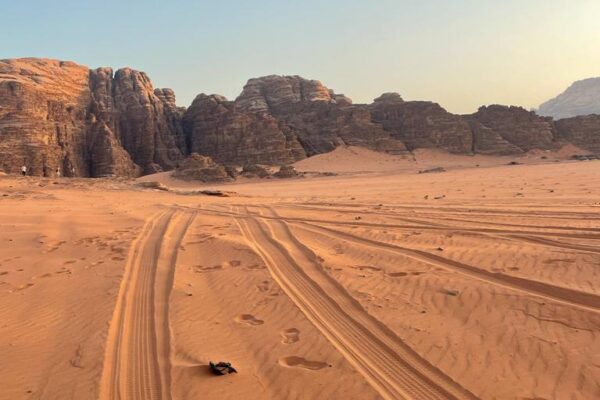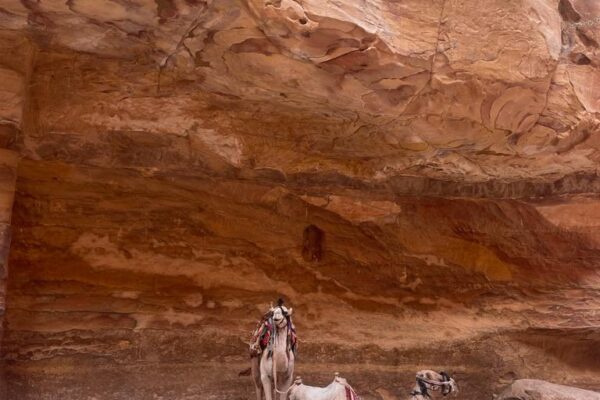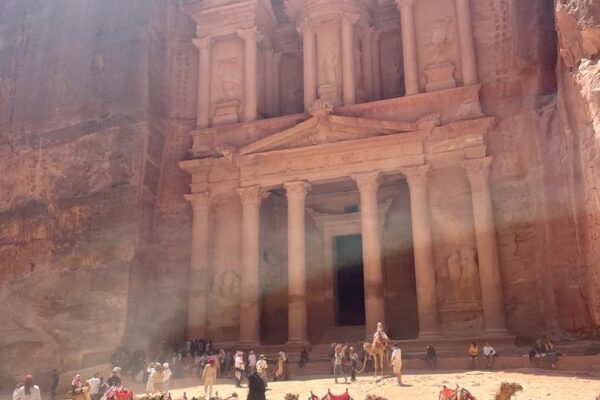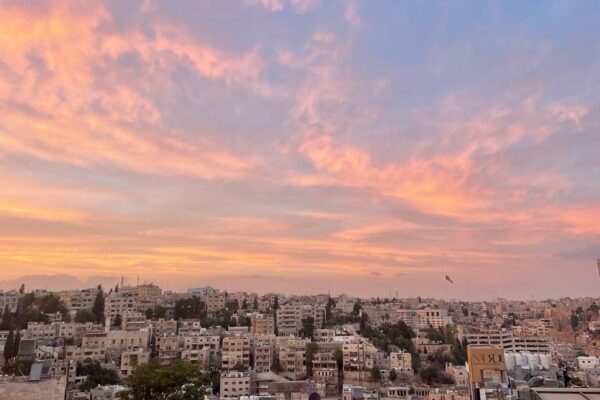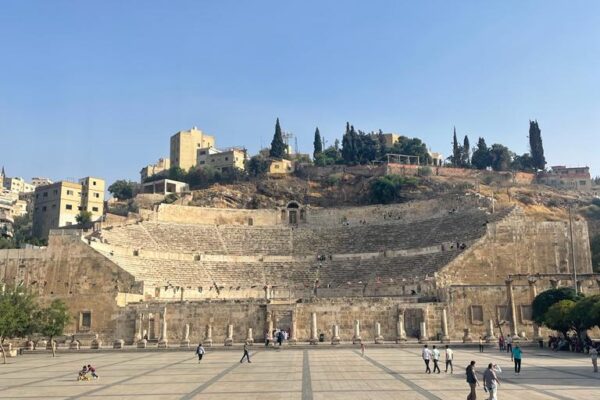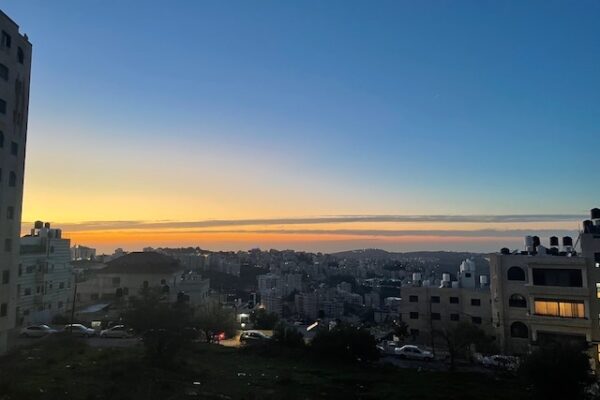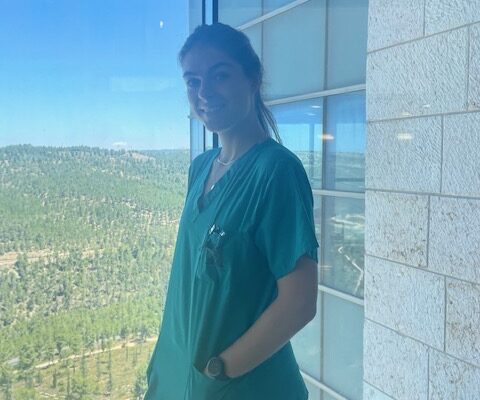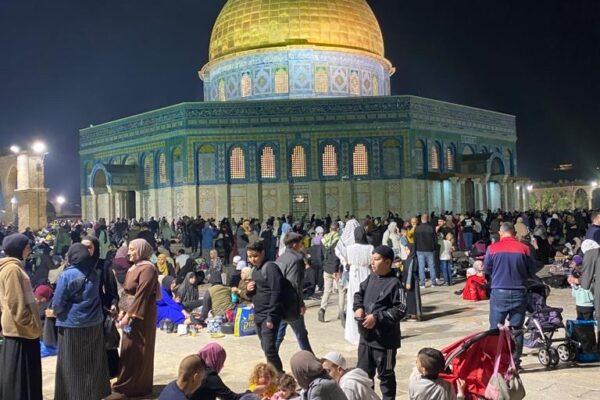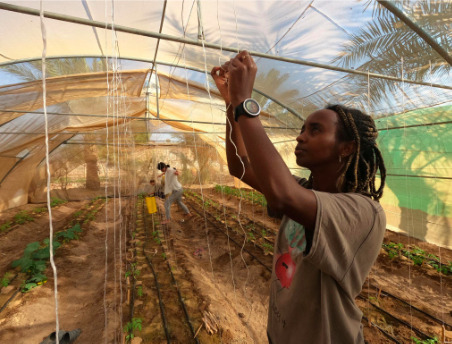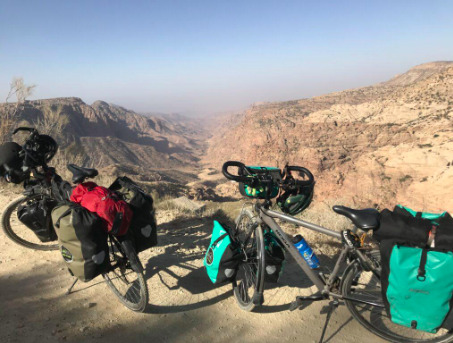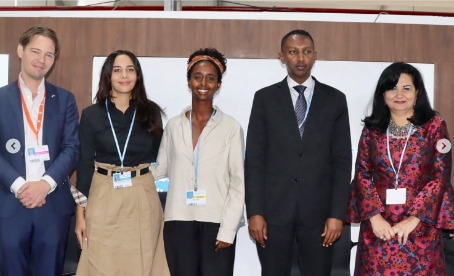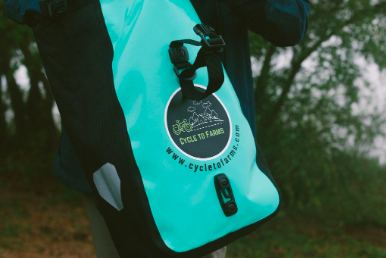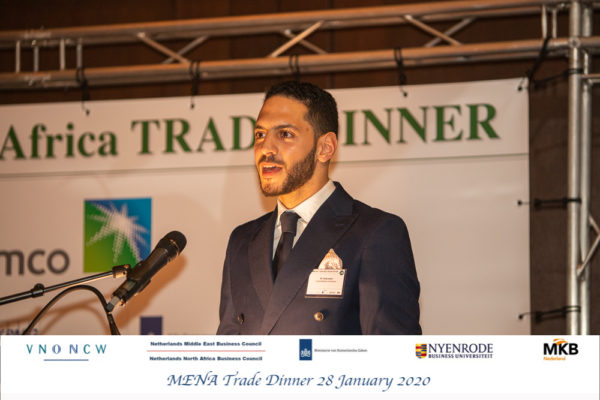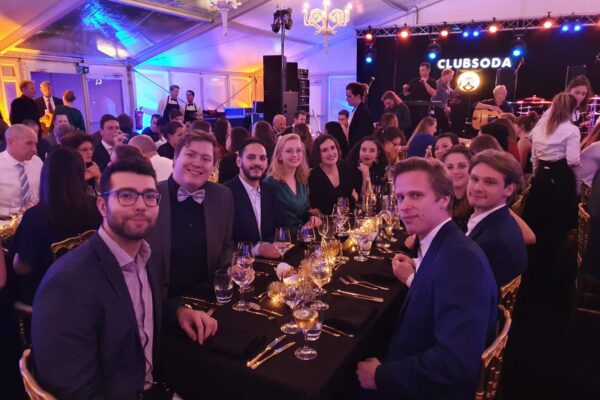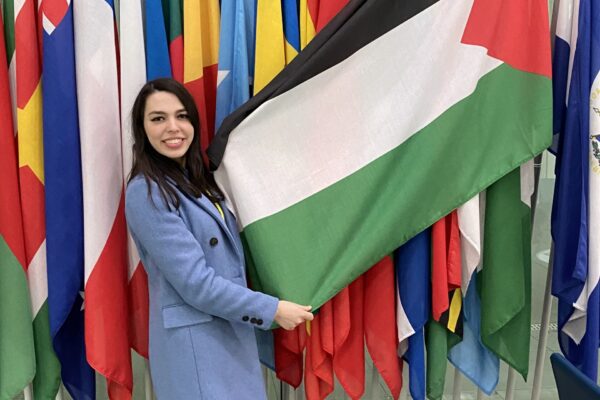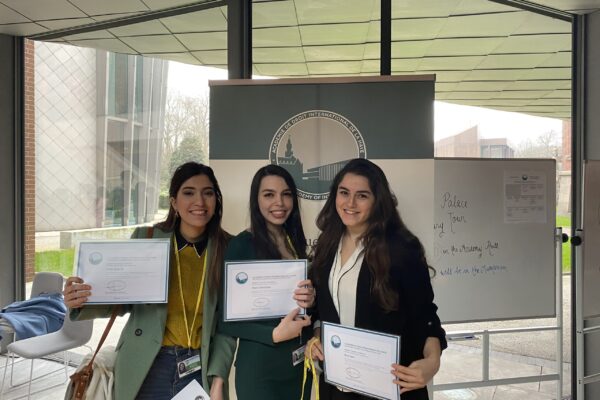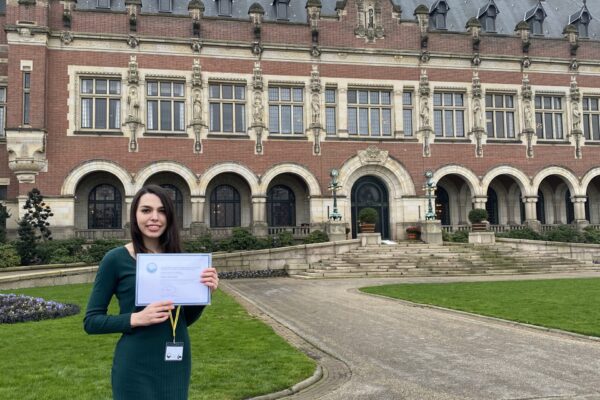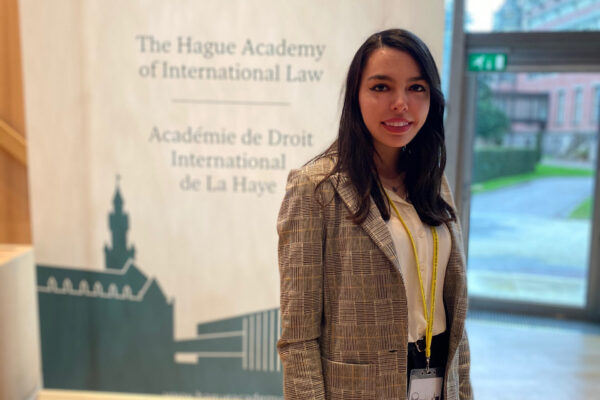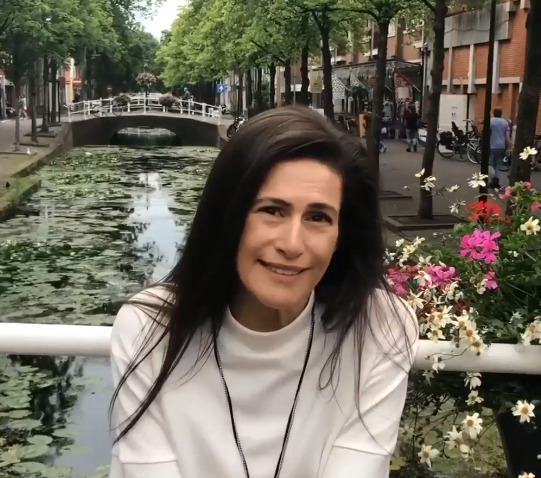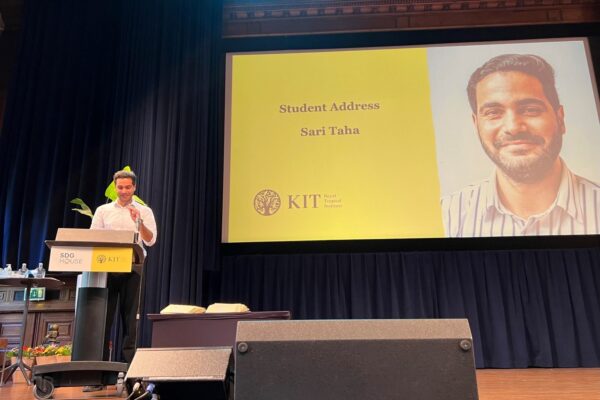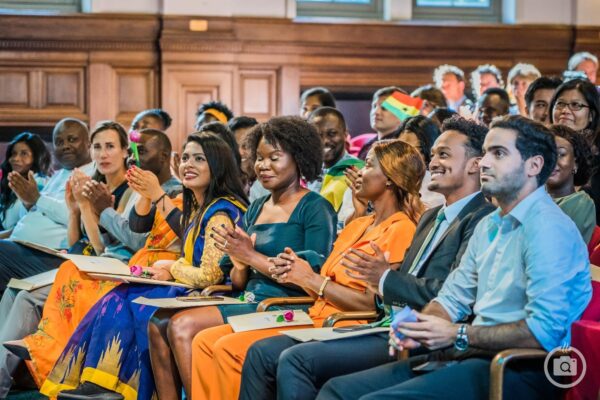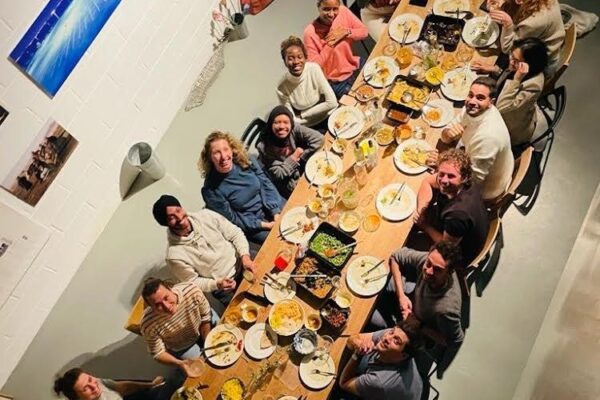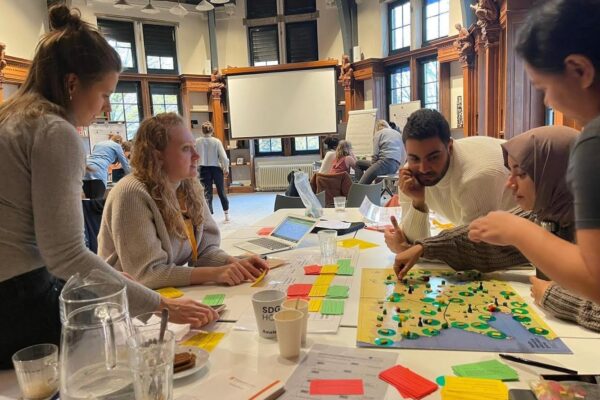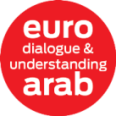Click here to find out more about Eline Koopman’s Travel scholar experience in Jordan! Would you also like to benefit from our Travel Grants? Our applications are open all year! Find out more about the application procedure and criteria here
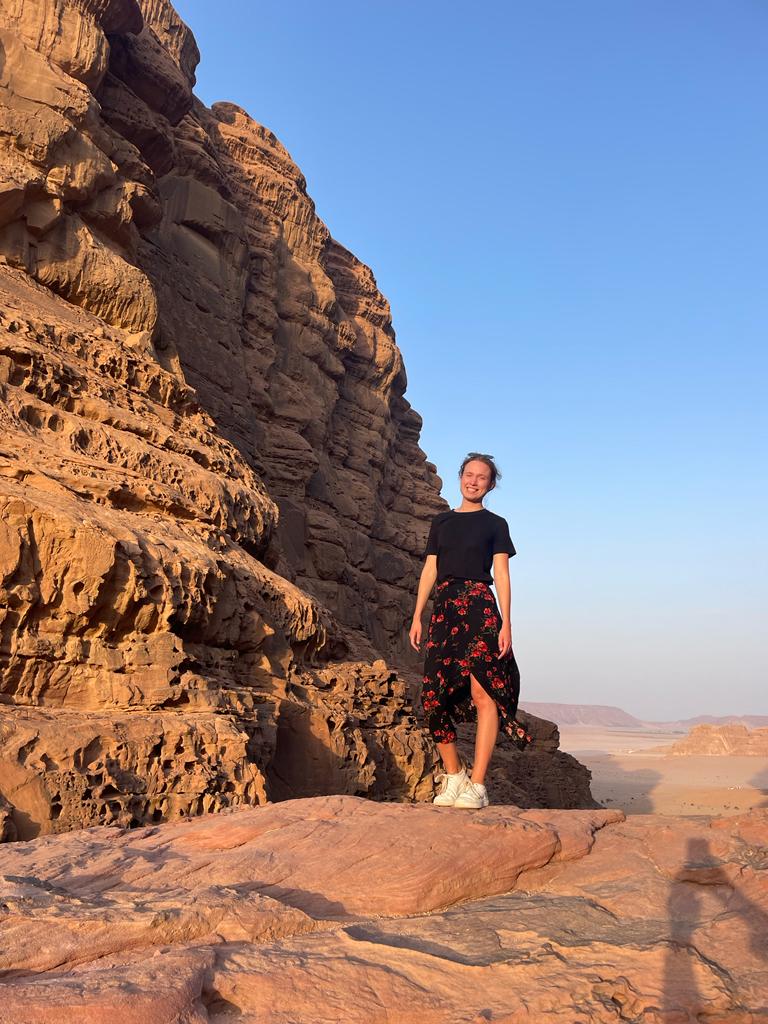
'The importance of community, seeing people as people rather than the label that society has put on them'
We have the pleasure of hearing about Eline Koopman’s travel experience in Jordan as a recipient of the Travel Grant. Her visit encompassed mainly Amman but also Petra and other smaller places. Eline, a dedicated Dutch master’s student, embarked on a remarkable journey that allowed her to delve into Jordanian culture and heritage.
Since September, my journey has led me to the heart of Jordan, where I’ve been immersed in a training program focused on social work with migrants and refugees. Beyond the academic rigors, Jordan has offered me a wealth of cultural and natural wonders to explore. From the ancient marvels of Petra to the bustling souks of Amman, every corner of this country has something unique to offer.
Besides delving into the complexities of humanitarian aid and its positioning in Jordan, I’ve had the opportunity to immerse myself in Jordan’s rich cultural tapestry. From wandering the ancient city of Petra to navigating the vibrant streets of Amman’s souks, I’ve been enchanted by the sights, sounds, and flavors of this country. Even interactions with taxi drivers have become cultural lessons, with hand gestures simplifying the process of ordering a typical Jordanian coffee.
At the German Jordanian University in Amman, where I’ve been attending hands-on courses, every lesson feels like a direct connection to the realities faced by refugees and the broader community in Jordan and the MENA region. Topics such as Mental Health and Psychosocial Support, Refugees, and Protracted Displacement & Durable Solutions have provided invaluable insights, bridging academic theory with real-world experiences shared by local teachers, NGO workshops, and even taxi drivers.
In addition to my academic pursuits, I’ve embraced the challenge of learning Arabic. While challenging at first, the ability to navigate everyday scenarios, such as grocery shopping in the souks, has been very helpful. The warmth of the people here has made this journey even more delightful, from learning traditional recipes to experiencing the unique greeting of “marhaba tain” that immediately makes one feel welcome. Yet, beyond the beauty of Jordan’s landscapes and the richness of its culture, it’s the people who have left the most lasting impression on me. Whether it’s the hospitality of Jordanian families or the resilience of the women I’ve met at the Iraq Al-Amir Women Cooperative Society, every interaction has been a showcase of inspiration to me.
One of the most poignant experiences has been my visits to the refugee camps of Zaatari and Al-Azraq. Here, I’ve witnessed firsthand the challenges faced by those living in displacement, from gendered issues to the struggles of Syrian children who have never known any home other than the camp. These experiences have reinforced the importance of community and genuine connection in humanitarian work. Moreover, through field training courses and meetings with organizations such as the UNHCR and local NGOs, I’ve gained a deeper understanding of Jordan’s humanitarian landscape. These encounters have underscored the resilience of communities in the face of adversity and the importance of seeing individuals beyond societal labels.
Thanks to the support of the Luftia Rabbani Foundation’s travel grant, my journey in Jordan has extended beyond the confines of a classroom. It’s been a journey of personal growth, cultural discovery, and above all, a deepening connection with the people and the land that have welcomed me with open arms. As I prepare to embark on the next phase of my journey, the lessons learned and the connections made in Jordan will continue to guide me. For in this land of contrasts and complexities, I’ve found not just education, but a profound sense of belonging. Jordan has truly become my second home.
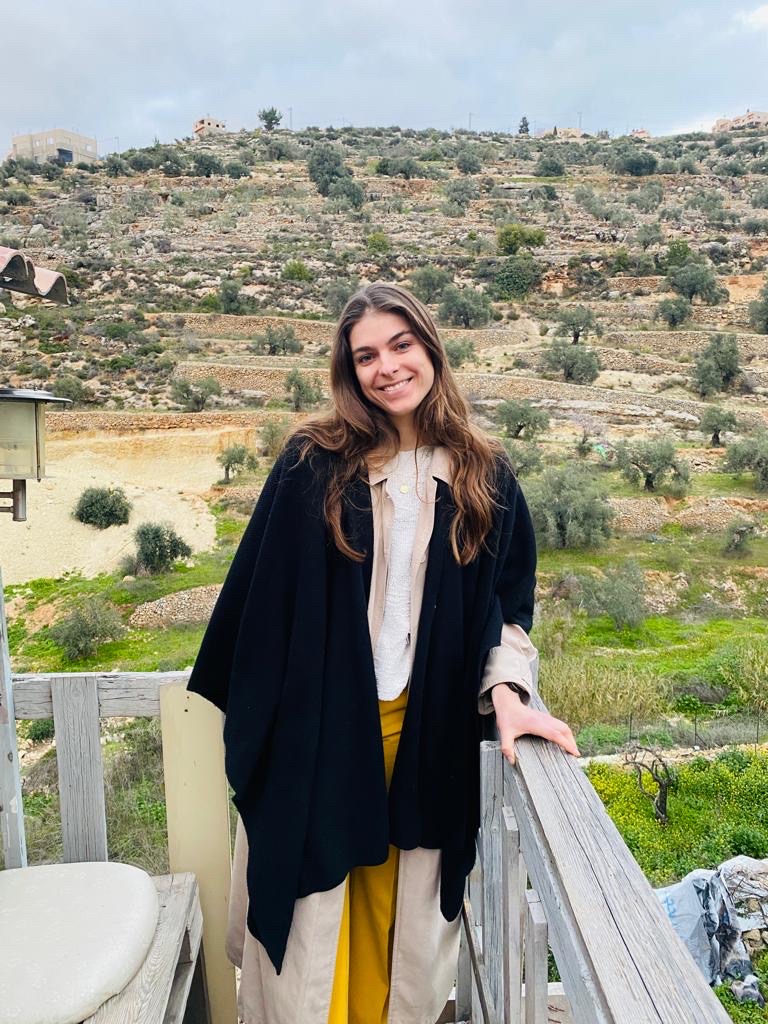
Click here to find out more about Judith van Grafhorst’s Travel scholar experience in Palestine! Would you also like to benefit from our Travel Grants? Our applications are open all year! Find out more about the application procedure and criteria here
"Ramallah is for Palestine what The Hague is to the Netherlands"
We have the pleasure of hearing about Judith van Grafhorst’s travel experience in Palestine as a recipient of the Travel Grant. Her visit encompassed two distinct yet captivating locations: Ramallah and Jerusalem. Judith, a dedicated Dutch medical student specializing in Neurosurgery, embarked on a remarkable journey that allowed her to explore various medical residencies in different departments, offering a unique perspective on her time spent in the region.
In January I flew to Tel Aviv and then traveled to Ramallah. Ramallah is for Palestine like The Hague is to the Netherlands; it is the political capital of the West Bank. Ramallah has different types of hospitals; private hospitals and government-owned hospitals. Eventually, I decided to volunteer at the Palestine Medical Complex which is a government-owned hospital in the center of the city. I volunteered at the General Surgery Department which is the biggest department and where patients come in every day. The surgeons and residents of that department are working the around the clock to get all the work done with insufficient facilities and recourses. How they work under the pressure of an endless number of patients, and the available recourses, is truly remarkable. I have learned to be creative, cope with stress, and still try to be positive. This is an experience that has learned me lessons that I will remember for the rest of my life.
My time in the Palestine Medical Complex is over, and I have just moved to Jerusalem to volunteer in Hadassah Ein Kerem at the Neurosurgery department. This is a totally different kind of hospital. It is weird to think that these two hospitals are just an hour apart (if the Checkpoint won’t take so long) but differ so much. In Hadassah, the medical practice is of a more academic and higher level. It is more comparable to what I am used to from the hospitals in the Netherlands. However, there are big differences as well. The ward is diverse, you can find all kinds of patients. Patients with different nationalities, languages (Hebrew, Arabic, English, and Spanish), and religions. Therefore, it is such an interesting environment to work in.
Introducing some of the Arab Ambassadors serving in the Netherlands who personify the Euro-Arab dialogue
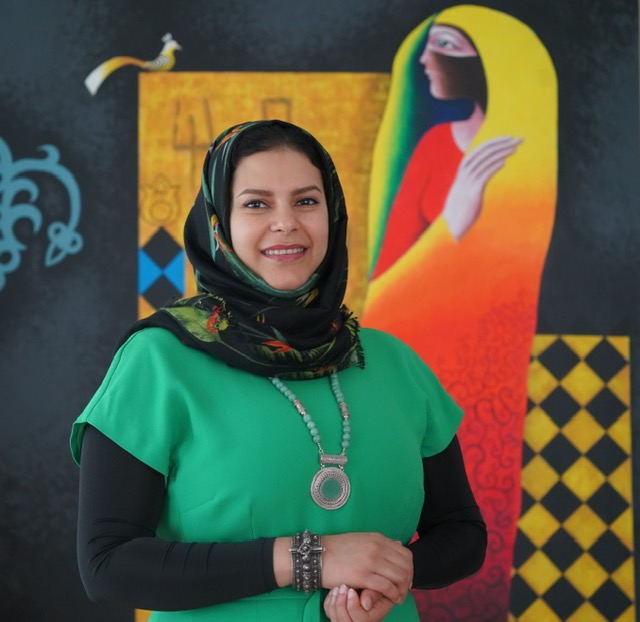
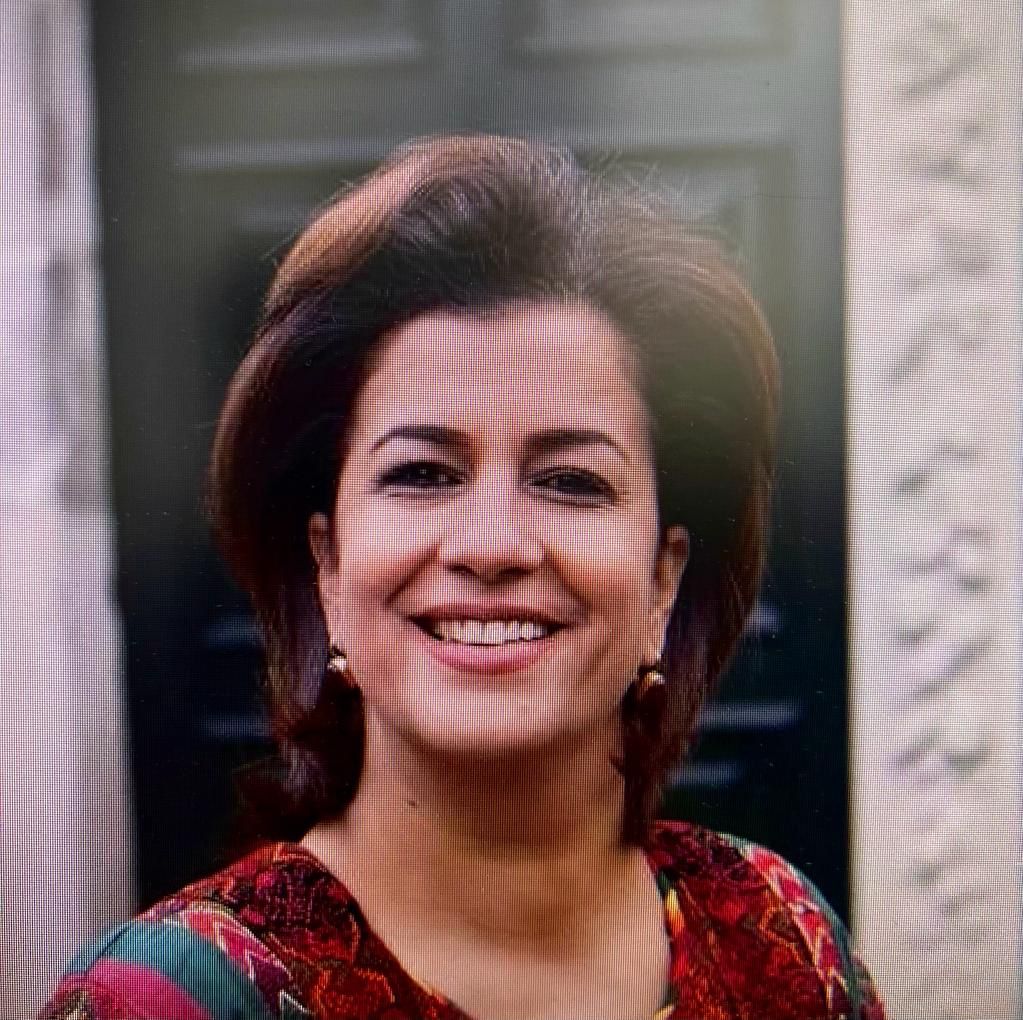
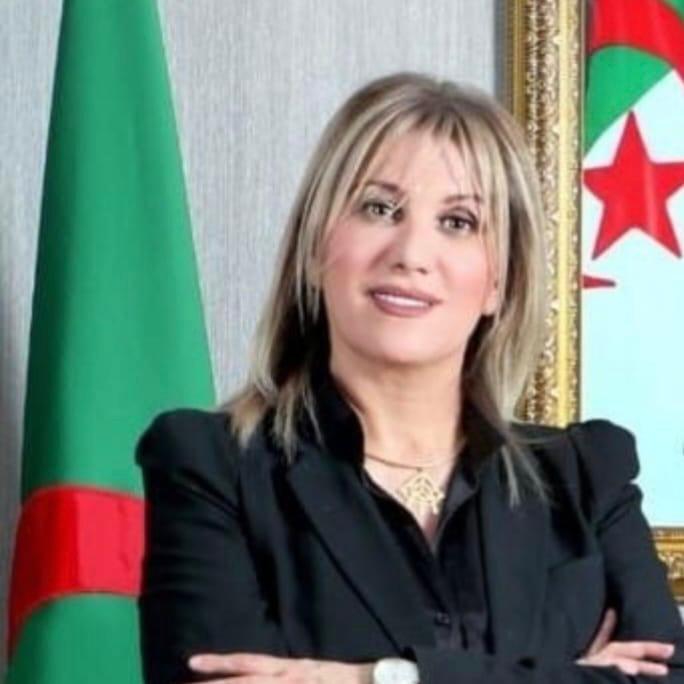
"What is one piece of advice you would give to young women?"
“Don’t be afraid of taking risks and making mistakes, it is only by “trial and error” that you will find your true self and make your own achievements.”
– H.E. Sahar Ghanem, Yemen
“Be the best of yourself and do not fear making mistakes. Mistakes happen, and we should learn from them.”
– H.E. Rawan Sulaiman, Palestine
“The first thing that crosses my mind when it comes to passing on some helpful advice to any woman, is getting a better education and a vocational training. This will not only increase her knowledge or sharpen her skills in specified area of activity but enable her to realize her potential, empower herself and contribute meaningfully to her society. Secondly, she has to be aware of her ability to shape her society given that women represent approximately half of the population. Being mothers, educators and mentors, her contribution is essential and crucial in different ways, including economic, social and cultural. It’s important for her to recognize her true worth and to have confidence in her ability to drive positive changes for a more equal and just society. In my book, confidence is a must for her to peruse her objective without seeking to be in competition with man. She has rather to value her own qualities, skills and the added value she brings to achieve common objectives of men and women in their societies. Determination is a crucial element for women to succeed in their personal and professional lives, but support and solidarity from other women is equally important. When women stand together and support each other, they can create a powerful network of empowerment and inspiration that can help them overcome obstacles and achieve their goals.”
– H.E. Salima Abdelhak, Algeria
"What progress have you seen in gender equality in your field of work?"
“Today the 24th of June 2023 we are celebrating the first anniversary of UN International Day of Women in Diplomacy. That highlights the recognition of the role women play in diplomacy and encourage all nations to take measurable actions into advancing women’s active participation in all fields and at all levels of diplomacy. It might not be a big step but it is a much needed one to keep the momentum alive.”
– H.E. Sahar Ghanem, Yemen
“I am proud of my team at the Palestinian Mission in The Hague and I am happy to see that we have so many women working with us, who bring with them rigor, diligence, creativity, efficiency, passion and a lot of dedication and commitment.”
– H.E. Rawan Sulaiman, Palestine
“Indeed, we have much to celebrate when it comes to women’s achievements in diplomacy in recent years. Tracking women’s involvement in Algerian diplomacy over the last two decades, it is encouraging to see more and more Algerian women choosing to work in the field of diplomacy whereas in the past, they rather chose education, medicine and justice where they are widely represented. And I can safely tell that our Foreign Service is verging steadily on more equitable representation within its apparatus by supporting women and encouraging them in their careers. Accordingly, Algerian women, succeeded, on their own merits, to hold prestigious managerial positions at the Ministry of foreign affairs and to brilliantly serve, overseas, as Ambassadors, Consuls Generals, Consuls, Counsellors, experts, international civil servants and so on. At an international level, Women have an increasingly presence in international arenas and have proven they are worth the leadership positions they hold in international organizations such as the United Nations, African Union, Arabe league to name a few. They have demonstrated their ability to make important decisions, solve complex problems and lead teams effectively. Women leaders in international arenas have also pushed forward important issues such as gender equality, human rights, environmental protection and international peace and security. They have used their position to make their voices heard and defend the interests of the most vulnerable people in the world. Having said this, I think that women across the globe still have long way to go to attain full equality in diplomacy. However, it has been paved by female elders who had fewer means than us today. Let’s therefore continue their ideal confidently.”
– H.E. Salima Abdelhak, Algeria
"Can you name us one woman that inspired you and why?"
“Absolutely my Mom, Suad Khan! My father was an expat working abroad and my mom was a working mother taking care of three children by her own. She had a big responsibility inside and outside home but that never undermined her will and ability of taking care of our small details. I remember her every end of the month, salary time, bringing me the little stories and novels I used to love reading when I was a teenager. I haven’t seen other moms in my surrounding doing that! She was self-educated but she always told me that I had to study abroad at the University of Oxford (the British colony influence)! I haven’t studied in Oxford (yet) but I believe she is so proud of my choices in life!”
– H.E. Sahar Ghanem, Yemen
“Late Ambassador Samia Bamieh was the role model that I looked up to. She was an extraordinary woman: a grassroots activist, a diplomat and a staunch advocate for women’s rights and Palestinian national rights. Samia always challenged and encouraged me along with my other colleagues to express our opinions and to be our best selves. She was also very supportive on the personal level, she always ensured that as a working woman I also took care of my family and found a balance between my work and personal life.”
– H.E. Rawan Sulaiman, Palestine
“Actually, I can proudly mention late Belmihoub Zerdani Meriem, an Algerian fighter, lawyer and feminist. She is known for her longstanding record of patriotism, devotion and her eternal strive for women rights, wherever she served domestically or internationally. In fact, she is one of our iconic female independence militant. Student in the faculty of Law, she responded spontaneously to the call of the National Liberation Front to serve as a nurse during our National Liberation war, for which she was jailed in France alongside many other Algerian females. At the independence of Algeria, Mrs Belmihoub became a member of the Constituent Assembly between 1962–1963. She contributed to a series of articles published by the daily newspaper “Le Peuple” in August 1963″, addressing the question ‘Is there an Algerian women problem?’. She left politics for the law, and became a lawyer at the Algiers Bar. She was appointed Minister Advisor to Legal and Administrative Affairs to the Head of Government then senator. She campaigned Throughout her career to defend the right of women, their representativeness in political or other bodies, and against the discrimination they undergo. She mobilized against the family code, protesting against the discriminatory provisions of this code towards women. She then participated in the Foundation of the Algerian family planning association. She tirelessly continued her advocacy for women rights after being elected as expert in the United Nations Committee against Discrimination against Women in 2003 for many mandates. She Held the significant role of Vice-Chair of Committee in 2012. I had the privilege to cross her way and interact with her while serving at the Permanent Mission of Algeria to the United Nations in New York and I was impressed by her display of professionalism, confidence, determination, and solidarity with women. Mrs. Belmihoub Zerdani departed from this world 02 years ago, but her legacy is still out here to teach us, especially women, the genuine sense of those tributes.”
– H.E. Salima Abdelhak, Algeria
Click here to find out more about Aisha Hassan’s Travel scholar experience through The Middle East! Would you also like to benefit from our Travel grant? Find out more about the application procedure and criteria here
"Of the total 7000 km, we cycled 1500 km in Jordan and Egypt to explore and document regenerativeagriculture practices from a farmer's perspective, with the aim of gaining a bottom-up understanding ofwhat regenerative agriculture means."
the grant helped a lot to cover some of the costs as we traveled through the Middle East. Although we mainly travel by bike, we had to take a flight from Athens to Amman because we couldn’t cycle through Syria. Also from Agaba (Jordan) to Nuweiba (Egypt), we had to take a boat to cross the Red Sea. We also needed a flight from Cairo to Nairobi because we decided not to travel through Sudan due to the current instability in Sudan. The grant also helped us stay longer in Jordan and Egypt to extend our visas. We stayed mainly with farmers and hosts, so in terms of accommodation, we were largely covered, but staying longer required more costs for food.
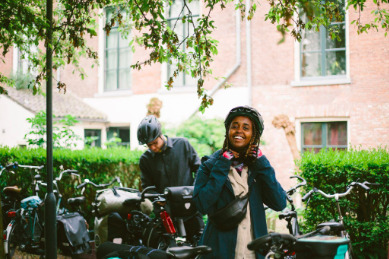
The Lutfia Rabbani grant has enabled me to travel to spend more time in Jordan and Egypt and because of that, we were able to grow our network in the Middle East and meet various people in the field of regenerative agriculture. Learning from different pioneers in the Middle East and sharing their stories with the world. I believe that these networks will remain and will be important for the further development of the Cycle to Farms project.
we are building a great social community by visiting different people in the field of sustainable agriculture, from policy makers to farmer activists to journalists and filmmakers. We connected different actors in the field. For example, when we were in Jordan visiting FadoulKawar in Madaba, we invited the Dutch agricultural attaché for Jordan and Egypt and two Wageningen researchers on water management to the farm. This led to a very interesting exchange of knowledge on which an article was published. More recently, we decided to broadcast our trip in the form of a documentary supported by a Palestinian-Canadian filmmaker whom we met during our trip to Amman. She has been our mentor for the past two months and has helped us translate our findings into a future documentary.
Click here to find out more about Mohammad Almazaien’s scholarship experience in Maastricht! Would you also like to benefit from our MSR scholar? Find out more about the application procedure and criteria here
"I addressed the importance of dialogue between scientific disciplines, organizations, cultures, and ideologies to find solutions for the complex problems of our world."
I am Mohammad Almezaien, I am from Egypt and I am the 2019 MSR Scholar. I completed my Bachelor studies in Pharmacy in Egypt. With the MSR scholarship I was able to complete the second year of my Master’s research programme in Clinical and Cognitive Neuroscience from Maastricht University.
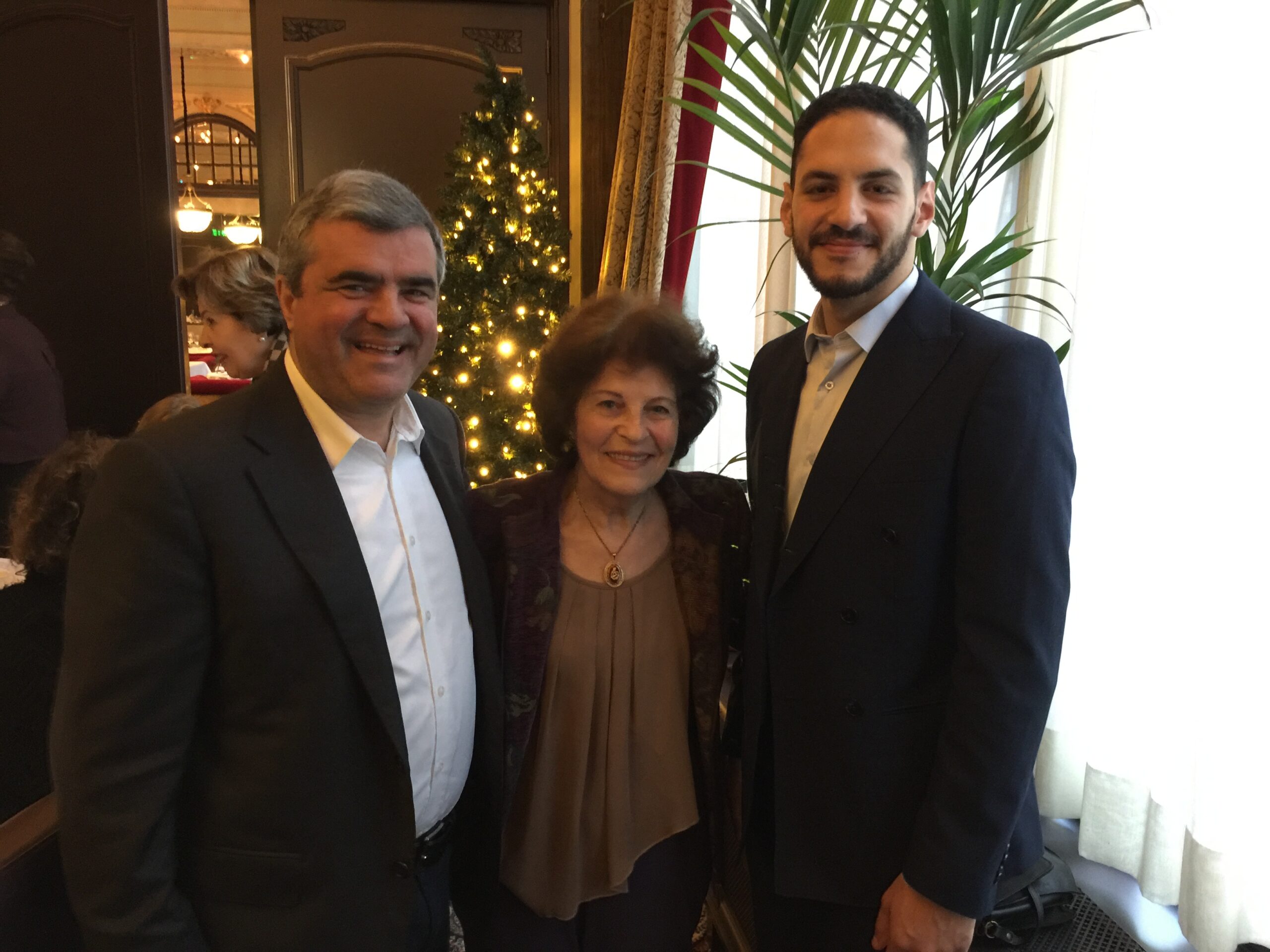
The year I obtained the MSR scholarship was a year of personal and professional growth. During that year, I did a research internship at the Centre for Human Drug Research; a fast-growing clinical research organization in Leiden. During the internship, I worked on a clinical trial that conducted a multitude of studies aimed at evaluating the effects of a novel pharmaceutical compound. The compound was aimed at treating vascular dementia. The experience pushed my boundaries as I crossed disciplines and learned new skills. I was also acquainted with the Dutch working environment, and extended my formal and informal networks.
Apart from my academic and professional achievements, 2019/2020 had more special events. I was able to bring together my Egyptian family and the Venezuelan and Dutch family of my partner. Despite the obvious differences, it was beautiful to see that an accepting and respectful environment creates a space for dialogue, and similarities become more salient in our minds than differences.
And finally, it was a pleasure joining LFR in some of the events they organized. I was asked to give a speech at the 11th MENA trade dinner, in which I addressed the importance of dialogue between scientific disciplines, organizations, cultures, and ideologies to find solutions for the complex problems of our world. I am grateful for all the opportunities that were given to me by the foundation. Needless to say, it was an honor to meet the Rabbani family and all members of the foundation.
Click here to find out more about Haneen Ghali’s scholarship experience in The Hague! Would you also like to benefit from our LUF/LRF scholar? Find out more about the application procedure and criteria here
"The scholarship program supported my studies financially and offered me personal and career support by being allocated a mentor, included in the Rabbani Foundation and the LUF events and being introduced to accommodating members of the LRF and the LUF."
I gained new knowledge on an academic and personal level. My degree program gave me specialized and practical knowledge which promoted my confidence. This is reflected on a personal level, as I now feel like I have a voice and access to different platforms to share my ideas with others. In addition, I gained insights not related to my field of study, for example, I learned a lot about living an eco-friendly life during my time in the Netherlands as it is a theme often discussed in university and amongst friends.. .
If I had to narrow down a list of factors that helped me achieve the academic and professional experiences I wanted to achieve, I would link it primarily to a flexible and open-minded state of mind, this was promoted by joining many student clubs and participating in international university conferences during my Bachelor’s. The experience of traveling, meeting students from different places, and interacting with faculty members impacted my view of the world and what I want to achieve in terms of goals.
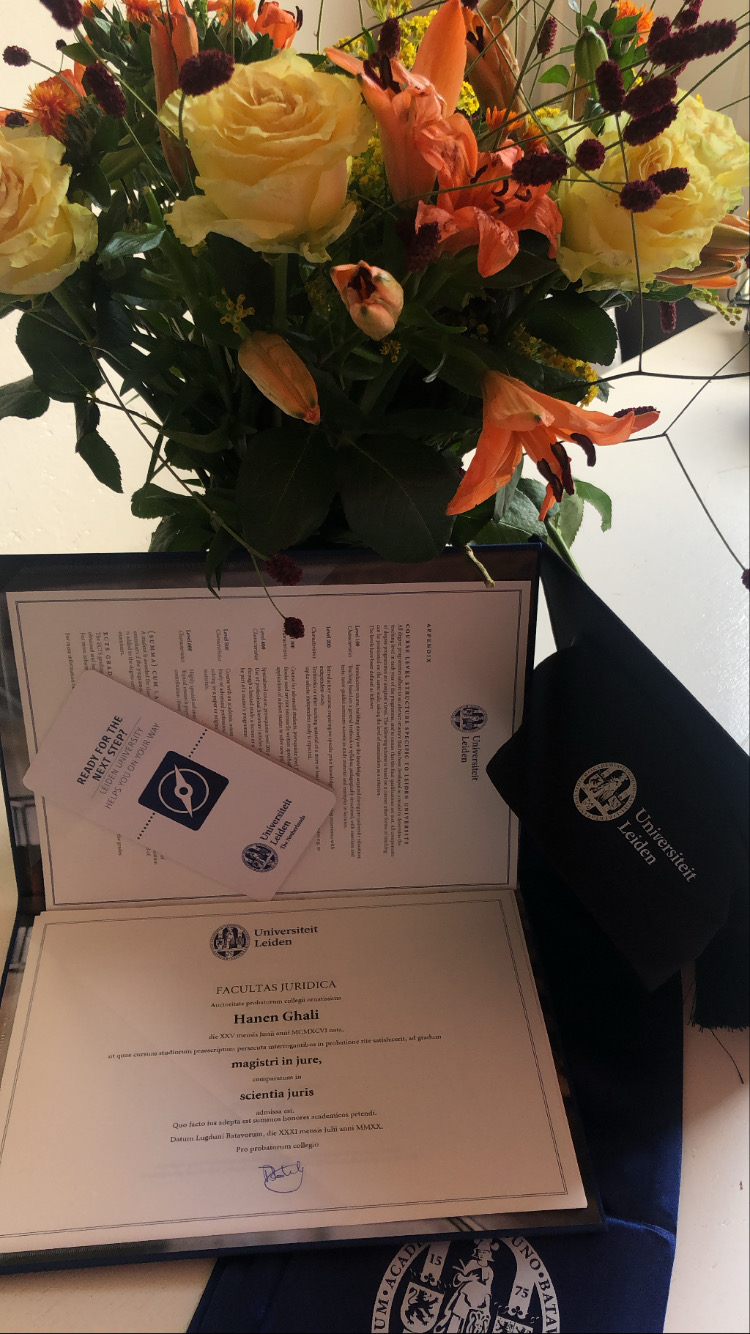
I am honored to be one of the recipients of the Lutfia Rabbani- LUF Scholarship.
My journey started way before I started my master’s in 2019. Since I was in college and developed an interest in Interntaional Law, I planned to study at an LLM at Leiden University and research the faculty a lot. I was attracted by the university’s prominence in Interntaional Law and the prospect of studying in the place where International Courts and Tribunals are hosted. Indeed, I had already got accepted to Leiden Law School after my graduation but I had to defer my acceptance as I did not have the funds. Lucky for me, The Lufia Rabbani Foundation and Leiden University Fund announced a joined scholarship for Arab Students and I applied and got accepted. Luck for me this time was being ready when the opportunity arose.
It is amazing how much one can learn in one year. One of the most rewarding aspects of studying at Leiden was the new toolbox of skills I developed. While the workload was at times overwhelming and stressful, the new knowledge and experiences made it worthwhile. The most significant experience during my academic year, was taking part in a Moot Court competition. The competition involved drafting legal memorials and an oral pleading exercise. My best memories are the endless hours spent in the library with my teammates researching our legal arguments and practicing our pleadings. This experience gave me training and confidence in my legal skills, and 3 new best friends. Moreover, I wrote my thesis on the prosecution of Interntaional Crimes committed in the context of the conflict in Syria. It was very important to me that my thesis supervisor worked for the UN in Syria. The exchanges we had always helped me frame my ideas for my thesis.
The new knowledge and experiences gained through my year in Leiden are not limited to my academic endeavors. In my day to day life, I enjoyed being exposed to international films, theatre and museums in Leiden and the Hague. When the pandemic hit, it was time to discover the outdoors! And I finally learned how to bike!
I am currently completing an internship with a Defence team in the International Criminal Court. This is an important step in my career as I finally get to apply in practice what I learned in Leiden as well as build my network.
Studying abroad can be lonely and challenging. However, having been welcomed by the Rabbani Foundation family and being surrounded by people who share their kindness, trust and vision have been fundamental to my journey and I consider myself fortunate for getting to be part of the Rabbani alumni network who I continue to be in touch with.
Click here to find out more about Faten Al Sourani’s scholarship experience in The Hague! Would you also like to benefit from our LUF/LRF scholar? Find out more about the application procedure and criteria here
"sharing thoughts and ideas towards what is happening in the world today is in my belief one of the main factors that brings nations together towards more peaceful and understanding world for all, while leaving no one behind."
I believe that the courses had a huge impact on my academic progress. I believe that the topics discussed in the period of the three weeks, opened my eyes to different aspect of international law and filled my mind with many questions to further research. The lectures, seminars and the discussions carried with the professors and my colleagues indeed helped me clarify many areas of international law and made me more open to new ideas and topics to research and discuss. I also believe that the courses to a great extend helped me with my master’s degree assessments, gave me ideas for my essays and most importantly helped me with my thesis.
I have also made connections with lawyers, judges, embassies’ diplomats, legal officers and workers of international organizations that I believe will indeed help me with my future academic and career goals.
My experience at the Hague extended outside the course’s classroom as it gave me the great chance of connecting with lawyers, judges and law students from around the world of almost 90 different nationalities. I was given the chance to make professional and social relations with my colleagues and professors from around the globe. It is now almost two months after the programme ended, but the dialogue between me and my newly made social connections is continuing.
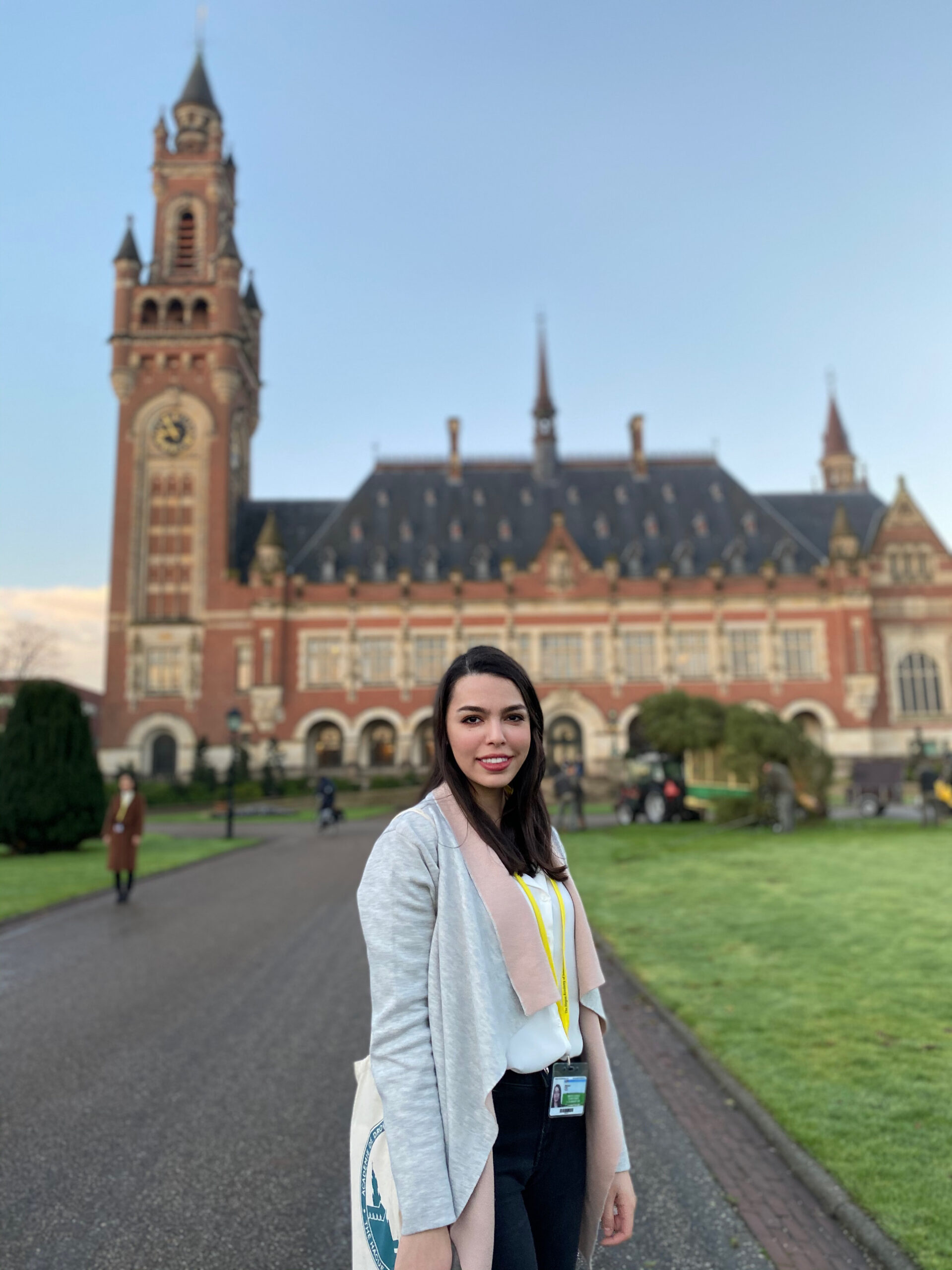
I believe humanity comes first. My sense of responsibility towards the people, especially those who went through sufferings and war atrocities. All what I do is for the sake of making the world we live in a bit more humane and just for people around the world. My country, Palestine and the ongoing suffering of my people that had no justice until the moment is also a main factor for pushing me forward to achieve more in my academic and career goals. Finally, people who believed in me were also a main factor for keeping me going regardless of all the pressures I go through. Supporting people includes family, friends, professors and most importantly, donors that believed in me and supported my goals along the way, which without them all of what I’ve achieved wouldn’t be possible. This includes the generous support offered to me by the Lutfia Rabbani Foundation.
Click here to find out more about Abeer Al Momani’s scholarship experience in Delft! Would you also like to benefit from our MSR scholar? Find out more about the application procedure and criteria here
"what LRF is offering in this scholarship program is truly impressive."
Abeer Almomani is a Jordan national who was funded in 2021 by the MSR Scholarship in order to complete her 5th year of PhD at the IHE Delft Institute for Water Education.
Do you want to know more about what being a Lutfia Rabbani Foundation Scholar entails? You can listen to the remarks by Abeer Almomani, 2021 MSR Scholar on the right.
Abeer gave this touching remarks during the MoU signing ceremony with the IHE Delft Institute for Water Education. She is from Jordan, and she was awarded an MSR Scholarship which helped her fund her 5th year of PhD at IHE. She is an exceptional scholar who overcame the academic and personal obstacles she faced. She is a strong and empowered Arab woman, and the Foundation is proud to support her in her journey and have her be part of our Alumni family.
We are sincerely touched by her words and hope they give you an idea of what to expect if you become a Scholar. We provide a mentorship programme and access to our wide network to all of our Scholars, and we work hard to ensure they have a good and successful experience during their studies in the Netherlands.
I’m very happy about my choice of IHE-Delft as an academic institute and the choice of Citizen Science as a topic for my PhD research. What I like about the academic approach at IHE is that it is science based but anchored in professional practice thus providing students with both theoretical knowledge and transferrable skills.
What I particularly like about my PhD research is that it is embedded in a real-life project implemented by IHE (The Ground Truth 2.0 Project https://gt20.eu/) this gave me the opportunity not just to carry out an academic research but to be part of the project implementing team.
I’m extremely satisfied with this scholarship, it possible for me to continue my research and achieve my goal and I’m deeply grateful for that. I believe that MSR is an exceptional scholarship program because it goes beyond financial support to provide us -the scholars- with a whole range of forms of support starting from the mentorship program, engaging us in cultural activities down to the kind and warm emails updating us of the COVID regulations in the Netherlands. I feel privileged to be MSR scholar and a member of Rabbani’s family.
Click here to find out more about Raghad Abuualshaikh’s scholarship experience in The Hague! Would you also like to benefit from our MSR scholar? Find out more about the application procedure and criteria here
"the organization is amazing at keeping contact with its awardees. Yonet and Salim and the other members of the organization are like my family in the Hague."
This scholarship helped me to achieve my dream to study development to contribute to enhance the understanding of migration policies.
While studying abroad, the first thing you might notice are the many differences between people. But in a weird I also started to see that all of these differences are also universal – people in many ways are the same everywhere. Studying abroad gave me the opportunity to really understand people from different cultural backgrounds and when I made international friends, I learned to embrace people’s perfections alongside their flaws.
This blessing of knowing many people from many cultural backgrounds taught me to understand myself better, and the importance of deepening my soft skills in order to thrive in any situation. Other than the hard skills that I gained from being in an international university, I believe that these invaluable experiences have added a lot of new perspectives and values to my personal development.

his scholarship had shaped my personal and professional life, I have learned so much from experiences all over the world and I was able to make friends from all over the world. Regarding my professional life. This master articulated conflict as a universal and a context-specific phenomenon. As a universal phenomenon, conflict is seen as an ever-present almost at every level of human interaction, with varying degrees of manifestations and consequences on individuals, groups, states and inter-state entities and relations. As a specific phenomenon, it situates conflicts in their specific histories, places, worldviews, and power relations between and among various actors- old and new. In a critical and deeply reflective way, first, this course introduced me to the broader field of conflict studies, different schools of thought and the ‘state of the art’ in conflict studies. Next, it engaged with diverse theoretical and methodological approaches applied to the study of violent conflicts, with special attention to underlying politics of researching and labelling of conflicts. Taking an applied and problem-solving approach, in the second part of the course, it assessed the strengths and weaknesses of the current governance arrangements and policies aimed at managing, resolving, and transforming violent conflicts.
My experience in studying my masters in The Netherlands has been a rollercoaster, I have had too many emotions and I have learned so much. Leaving my country and coming to study at the International Institute of Social Sciences to pursue my masters has been an amazing experience which would not have come true if I was not granted this scholarship. I made friends from all over the world, I have learned how to apply social justice theories to multiple contexts. I have made amazing memories from the Hague and I can move forward with my memories and the knowledge that I have made here. The Major offered a broad range of analytical and practical skills to young and mid-career professionals and aspiring academics interested and engaged in human rights, women, and gender and in peace work, whether in government, research or civil society organizations. I also engaged with a range of understandings of contemporary violent conflicts and actions for achieving peace. Inspired by critical social science, the Major brings together a team of lecturers who approach social justice from a variety of often very different perspectives. I fell in love with The Hague, the city is very friendly and cheap compared to other cities. There is a lot of space and anything you can ask from a city and very international, both in the university as well outside of it.
Click here to find out more about Sari Taha’s scholarship experience in Amsterdam! Would you also like to benefit from our MSR scholar? Find out more about the application procedure and criteria here
"the scholarship provided me with the opportunity to study in a renowned institute where I was able to make life-long contact with international professionals working in healthcare. "
Certainly, without the support of the scholarship, I wouldn’t have been able to travel and study in the Netherlands—that is, the scholarship played a major role in the possibility to start my master’s programme, to begin with. Then, the steadfast support and guidance of the scholarship were key for the exceptional academic year that I have had. The continuous communication between the family foundation and the student provides psychological support for the latter, and it makes the new place a home away from home.
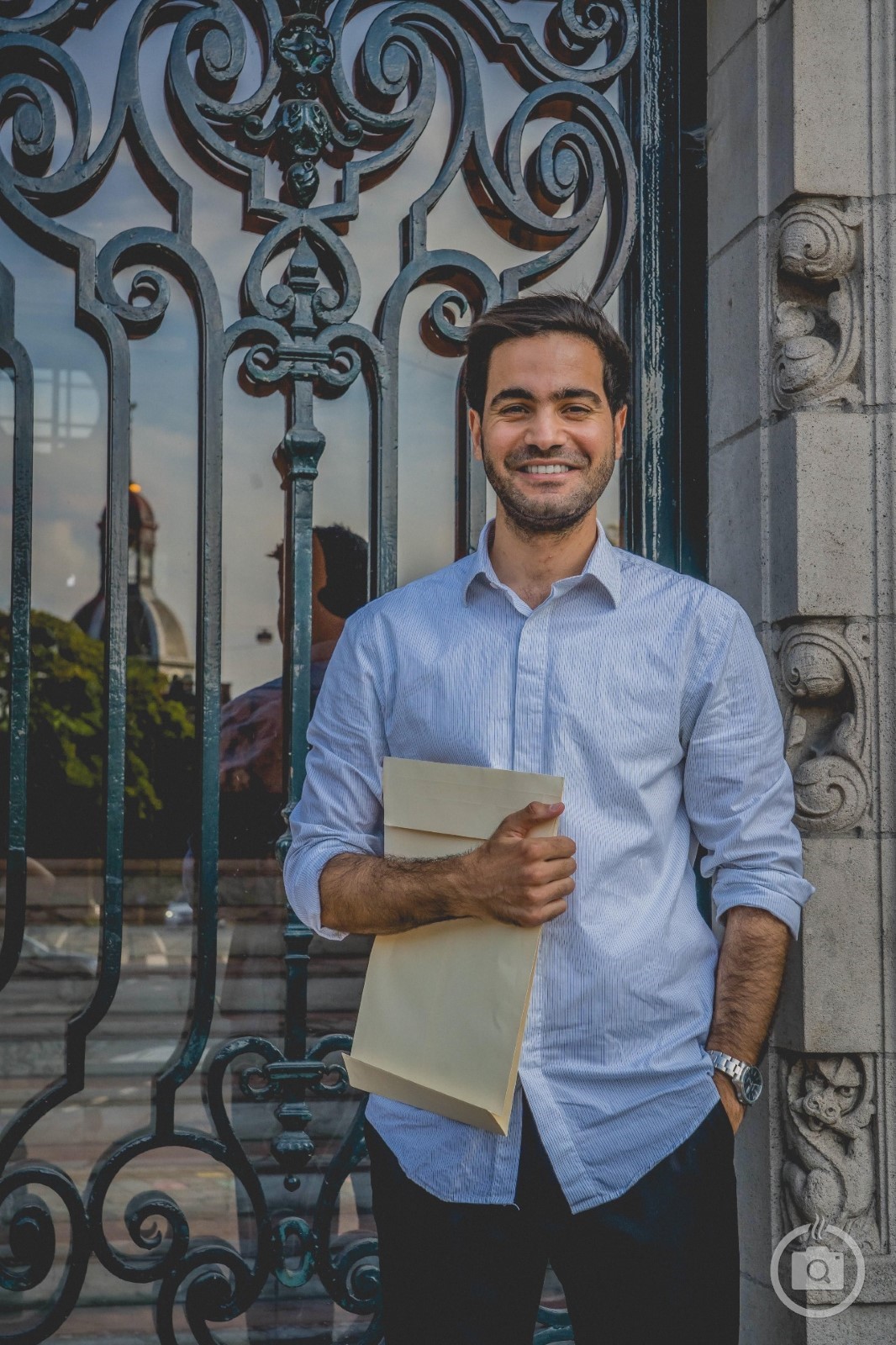
Studying abroad is certainly a rewarding and life-changing experience for almost everybody, including me. That being said, I would write more about the special aspects of my journey, and less about the run-of-the-mill details. From the first meeting, I sensed the convivial atmosphere of the Lutfia Rabbani organization. I knew throughout my journey that whenever I needed support, it would be there—sixty kilometer southward in the Hague. The support was unceasing and unconditional, including the fact that the scholarship was indispensable to embark upon my studies; the psychological support and invaluable advice of the organization family; and the chance to befriend other scholars who shared similar experiences.
The Royal Tropical Institute was a perfect fit for my career. The institute is a melting pot of diverse, mid-career professionals who were at the same career stage as mine, gathered as a cohesive whole towards a common goal—improving global health. Amid this international aura, I gained a key set of skills from healthcare experts and exchanged knowledge with other colleagues. I was also exposed to a new learning style that adopts open discussion, self-learning and non-hierarchical approach, which all have become values I am keen to embrace in my future academic and professional career.
Above all, Amsterdam, as a lively, multicultural city, introduced me to a unique experience. It helped me to develop the skills and attitudes that are key to indulge in international meetings, and to be culturally sensitive to people from various backgrounds. More importantly, Amsterdam is a European hub of cultural, artistic and educational events rarely found elsewhere. Overall, the experience was a crucial milestone in my personal and professional development whereby I immensely changed for the better.

